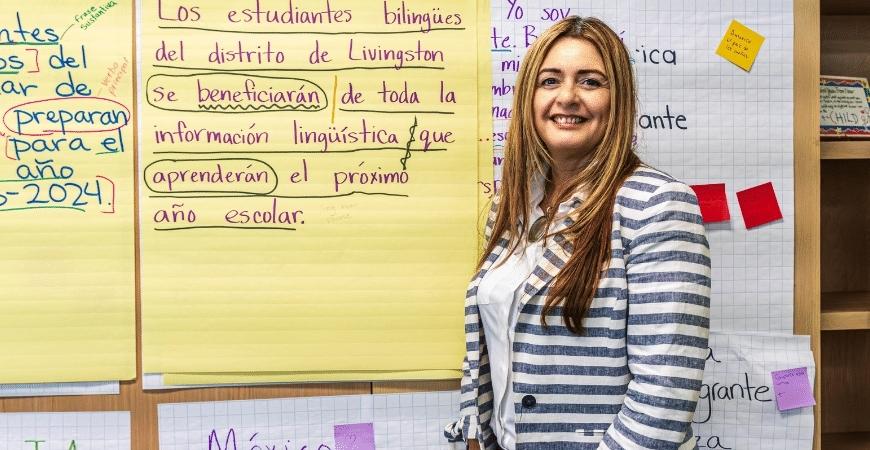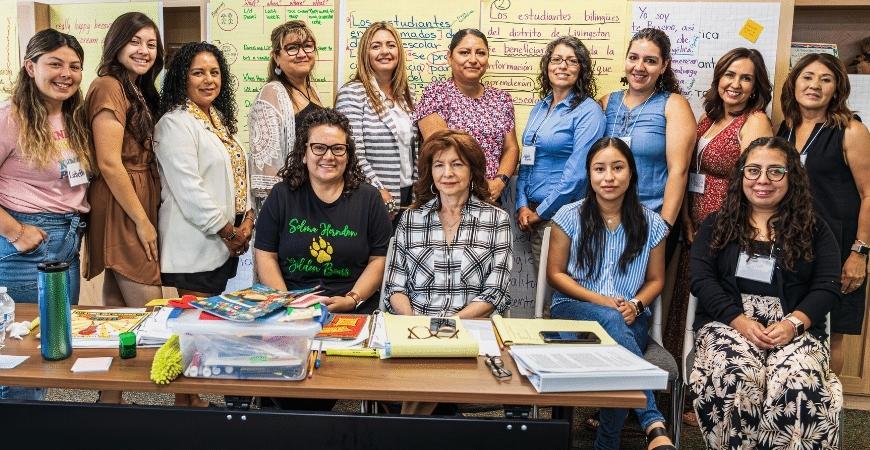
Cognitive Science Professor Zenaida Aguirre-Muñoz has a passion for biliteracy that has driven her to improve the quality of learning in both English and Spanish at schools in Texas and Central California.
A $3 million National Professional Development grant from the U.S. Department of Education funded her work in the small Merced County town of Livingston. This summer, she worked with Livingston Unified School District teachers interested in developing their biliteracy knowledge and teaching practices.
"A lot of the smaller school districts in rural areas don't have the same opportunities as larger school districts when it comes to professional development," said Aguirre-Muñoz. "So I wanted to make sure that I targeted school districts that fit that background."
This two-week program targeted teachers who are already working in dual language programs and want to develop their biliteracy skills. Educators were presented with the latest research strategies, worked to develop their knowledge of English and Spanish grammar, and used those skills to develop lessons that strengthen their students' learning.
The grant paid for 13 Livingston Unified educators to participate in the critical language awareness institute. The teachers and literacy coaches will have access to continued education this academic year and opportunities to travel to bilingual conferences.
"There's a big need in the area for more bilingual authorized teachers," said Aguirre-Muñoz.

For many students in Livingston, the ability to be bilingual won't just benefit them in their future education and career endeavors, but in their bonds with family members at home.
"It supports not only their academic development, but their relationship with their families who may not speak English," said Aguirre-Muñoz.
The ripple effect of the professional development will go far for the small district. The participating educators work with about 500 Livingston students every day. With so many people of Punjabi heritage in Livingston, in some cases, students enrolled in dual immersion are learning a third language.
"They do have a sizable population who are Punjabi in the Spanish-English dual immersion program. So, they are actually picking up Spanish," said Aguirre-Muñoz. "They feel more connected to the Spanish-speaking community they live in."
Aguirre-Muñoz said the training also sparked an interest in educators about further opportunities at UC Merced.
"After just a couple of days, teachers are already asking what kind of programs we have. They want to go back to school," she said. "They see UC Merced in a completely different light. They didn't know that there was faculty there doing this kind of work."
This was the second summer that Aguirre-Muñoz conducted this training locally. Last summer, she visited Planada and next summer, she will be working with more Livingston teachers but is open to extending this opportunity to school districts in nearby communities, including Los Banos and Madera.




 Public Information Officer
Public Information Officer

